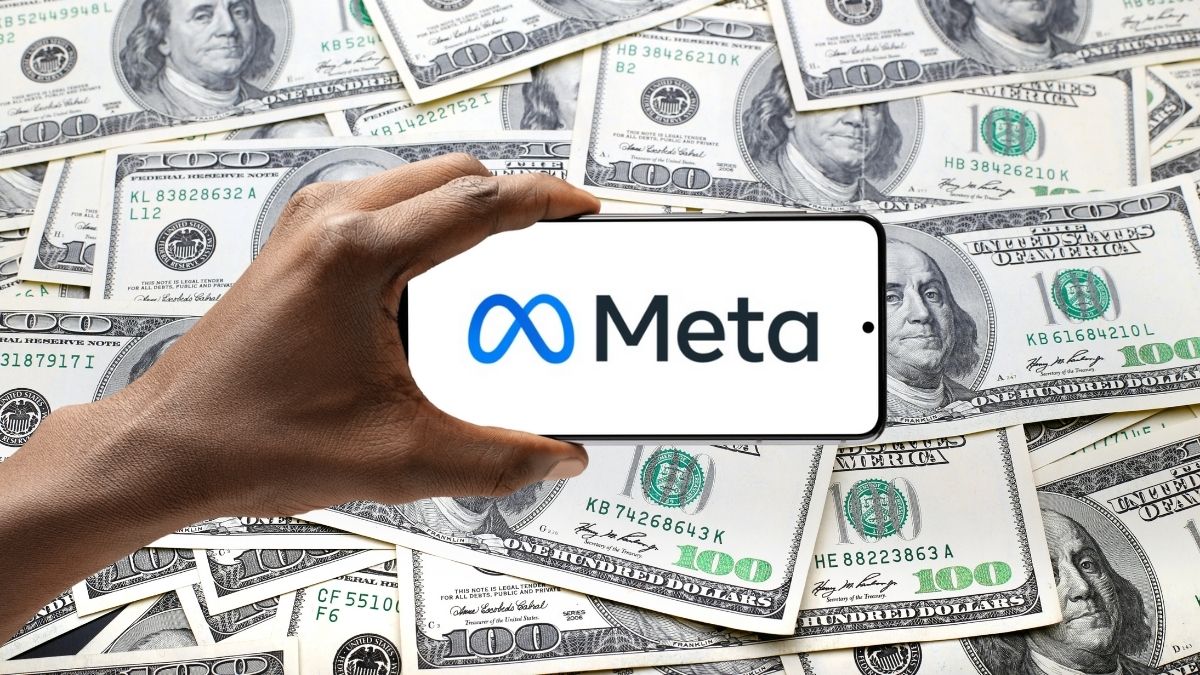
Meta Platforms, Inc. (Nasdaq: META), the company led by Mark Zuckerberg and parent of Facebook, WhatsApp, and Instagram, surprised the market with its second-quarter 2025 results. According to the report submitted to the SEC (Securities and Exchange Commission), the company increased its revenue by 22% year-over-year, reaching $47.516 billion, driven mainly by its advertising business.
Despite a challenging environment for the U.S. economy—marked by trade tensions and Donald Trump’s tariffs—Meta posted a net income surge of 36%, reaching $18.337 billion, and its stock jumped more than 10% in after-hours trading.
ALSO READ. Donald Trump imposes more tariffs on copper: which products will be affected?
Artificial intelligence: the new guiding force for Meta
After lukewarm results from its metaverse project, Zuckerberg has redirected Meta’s strategy toward artificial intelligence (AI). “We’ve had a strong quarter both in terms of our business and our community,” the CEO said when presenting the results, emphasizing that he is “excited to build personal superintelligence for everyone in the world.”
This new strategy has taken shape through an intensive hiring campaign in Silicon Valley. Meta invested $14.3 billion in Scale AI and hired its CEO, Alexandr Wang. Days later, it brought on Shengjia Zhao, formerly of OpenAI and part of the ChatGPT development team, to lead the new Meta Superintelligence Lab.
ALSO READ: Artificial Intelligence in Marketing: The 10 Areas Where It Is Most Widely Applied to Personalize Campaigns
How much is Meta spending on artificial intelligence?
The push for AI is accompanied by a massive expansion in tech infrastructure. Meta raised its annual capital expenditures forecast to a range of $66–72 billion, primarily to build data centers capable of training advanced AI models. According to the company, these facilities are key to maintaining its competitive edge against rivals like Google, Microsoft, and Apple.
Additionally, Meta is offering multi-million-dollar compensation packages to AI researchers from competing firms to attract top-tier talent. “I’m extremely optimistic that superintelligence will help humanity accelerate the pace of our progress,” Zuckerberg stated. “But even more importantly, it has the potential to spark a new era of personal empowerment.”
Meta expects its strong performance to continue. For the third quarter, it projects revenue between $47.5 and $50.5 billion, exceeding Wall Street estimates. However, it also warned that year-over-year growth could moderate toward the end of the year.
What challenges does Meta face in the near future?
Meta continues to face antitrust lawsuits in the United States, where regulators are seeking to force the sale of Instagram and WhatsApp. The company has also drawn criticism for the high costs associated with its AI pivot.
To that, add tax and regulatory uncertainty, especially in Europe, where the Digital Markets Act could limit advertising revenue. Nonetheless, Zuckerberg remains resolute: “we’ll spend less time in productivity software and more time creating and connecting,” he said.
META Q2 2025 Results
| Indicator | Q2 2025 Result | Year-over-Year Change |
|---|---|---|
| Total revenue | $47.516 billion | +22% |
| Net income | $18.337 billion | +36% |
| Earnings per share (EPS) | $7.14 (diluted) | +38% |
| Operating margin | 43% | +5 p.p. vs 2024 |
| Total costs and expenses | $27.075 billion | +12% |
| Free cash flow | $8.549 billion | -21.6% YoY |
Operational and advertising metrics
- Daily Active People (DAP): 3.48 billion (↑ 6% YoY)
- Ad impressions: ↑ 11% YoY
- Average ad price: ↑ 9% YoY
- Advertising revenue: $46.563 billion (↑ 21% YoY)
Business segments
Family of Apps (Facebook, Instagram, WhatsApp, Messenger)
- Revenue: $47.146 billion
- Operating income: $24.971 billion
Reality Labs (virtual and augmented reality)
- Revenue: $370 million
- Operating loss: -$4.530 billion
Cash flow and capital
- Cash, equivalents, and securities: $47.070 billion
- CapEx investment (incl. leases): $17.010 billion
- Class A stock repurchase: $9.760 billion
- Dividend payments: $1.330 billion
Human resources
- Total employees: 75,945
- Headcount growth: +7% YoY










